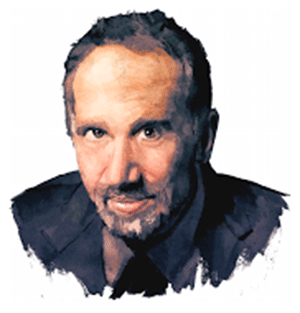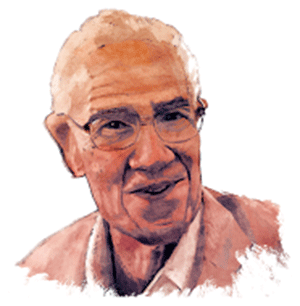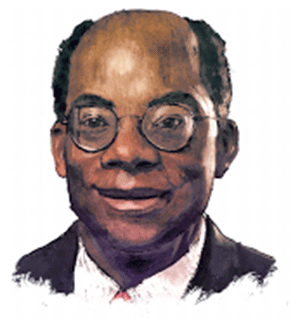Editor’s Note: This special collection from our Future of Work and Workers series was published as a four-page spread in our November/December 2015 print issue. We offer it here as a summary of the four months’ worth of op-eds that ran—and can still be found—at PSmag.com/work.

In this selection of excerpts from our Web series about the future of work, you’ll find a Nobel Prize winner, public intellectuals, and CEOs offering predictions and advice. Visit PSmag.com/work to comment on the series—and to view our full slate of Web exclusives done in collaboration with the Center for Advanced Study in the Behavioral Sciences at Stanford University with support from the Rockefeller Foundation.
DEAN BAKER

“The corruption of United States politics may be so great that corporations will be able to use new technologies to undermine labor laws on an ever-larger scale as the government pursues macroeconomic policies that are intended to leave much of the labor force unemployed and most of the employed with little bargaining power. This is indeed a very bleak scenario for the future, but it is silly to blame the robots.”
—Dean Baker is co-director of the Center for Economic and Policy Research
ANDREW SCHRANK

“When I think about the ‘jobless future’ predicted by so many observers, I’m reminded of the late Cambridge economist Joan Robinson, who famously quipped that ‘the misery of being exploited by capitalists is nothing compared to the misery of not being exploited at all.’ … One can thus envision a more auspicious future in which an increasingly educated and empowered global workforce confronts a somewhat chastened corporate elite on democratic terrain that is more favorable to the former.”
—Andrew Schrank is a professor of sociology at Brown University

SEBASTIAN THRUN
“AI in machines like the self-driving car is the Gutenberg Bible on steroids. Those who thrive will be the ones who can make artificial intelligence give them superhuman capabilities.”
—Sebastian Thrun is an educator, programmer, and robotics developer
HAROLD MEYERSON
“The only thing that will arrest the decline of the American job is workers finding the ability to demand their due and thus mitigate the economic disaster and moral rot that is 21st-century American capitalism.”
—Harold Meyerson is editor at large of the American Prospect
SHARAN BURROW
“The global need for infrastructure, assessed to be $90 trillion by 2050, can be both a catalyst for job creation and an opportunity to ensure the vital green infrastructure required for a zero-carbon future.”
—Sharan Burrow is general secretary of the International Trade Union Confederation
MARY L. GRAY
“Supporting the many people who may never enjoy the security of a 40-hour workweek will be one of the most important conversations we have about the on-demand sharing economy.”
—Mary L. Gray is a senior researcher at Microsoft Research

LYDIA DEPILLIS
“With the exception of registered nurses, the 10 highest-growth occupations for the next decade make less than $33,000 per year, according to the Bureau of Labor Statistics. That’s not the kind of employment base you need to re-build a middle class.”
—Lydia DePillis is a reporter for the Washington Post
ROBERT SOLOW

“The decay of unions and collective bargaining, the explicit hardening of business attitudes, the popularity of right-to-work laws, and the fact that the wage lag seems to have begun at about the same time as the Reagan presidency all point in the same direction: The share of wages in national value added may have fallen because the social bargaining power of labor has diminished.”
—Robert Solow is a Nobel Prize-winning economist
DOROTHY SUE COBBLE

“Most Americans work too long and are paid too little. Reversing these trends is the most important thing we can do to improve the lives of workers today. Time and money are connected but not in the way we often think. For all too long we’ve been trying to raise our pay by lengthening our hours. In truth, we need to shorten our hours. Then and only then will we be able to raise our pay.”
—Dorothy Sue Cobble is a professor at Rutgers
ROGER W. FERGUSON JR.

“This year, the Millennials—at 83.1 million strong—overtook the 75 million Baby Boomers to become the nation’s largest population group. As someone who regularly visits college campuses nationwide, I am optimistic. In fact, I think they hold the key to finding solutions to the challenges we face as a result of an aging population and declining productivity.”
—Roger W. Ferguson Jr. is the president and CEO of TIAA-CREF
NATASHA ISKANDER
“The right to withhold labor is the foundational right that makes us free. The right to withhold labor is arguably the source of all worker power.”
—Natasha Iskander is an associate professor at New York University’s Wagner School of Public Service
MARGARET LEVI
“The real power of workers is—and always has been—the threat of strikes, of withholding labor. And here the future is most grim. The capacity to strike, at least peacefully strike, declines in the U.S. as one state after another adopts ‘Right-to-Work Laws’—that is, laws that restrict the ability of unions to collect the dues that support their negotiation of contracts, their lobbying, and their general organizational capacity.”
—Margaret Levi is the director of CASBS at Stanford University
RICHARD L. TRUMKA
“The free market drives innovation, but also a relentless effort to reduce costs, including labor costs, and one primary area of ‘innovation’ in the past half-century has been in avoiding the ‘cost’ of complying with law. Employers have escaped U.S. labor law by moving jobs across borders and by re-structuring their relationship with the workers in order to claim that they no longer employ them.”
—Richard L. Trumka is the president of the AFL-CIO
PAUL SAFFO
“Guaranteed Minimum Income—paying individuals whether or not they work—is a fascinating concept. But outside its limited use as a small-scale experimental alternative to welfare or development funds, history suggests it is unlikely in the extreme. Particularly in the U.S., with its myth of the work ethic and its aversion to ‘moral hazard,’ Guaranteed Minimum Income will be as hard a sell as Leninism.”
—Paul Saffo teaches forecasting at Stanford University

Submit your response to this story to letters@psmag.com. If you would like us to consider your letter for publication, please include your name, city, and state. Letters may be edited for length and clarity, and may be published in any medium.
For more from Pacific Standard, and to support our work, sign up for our free email newsletter and subscribe to our print magazine, where this piece originally appeared. Digital editions are available in the App Store and on Zinio and other platforms.





